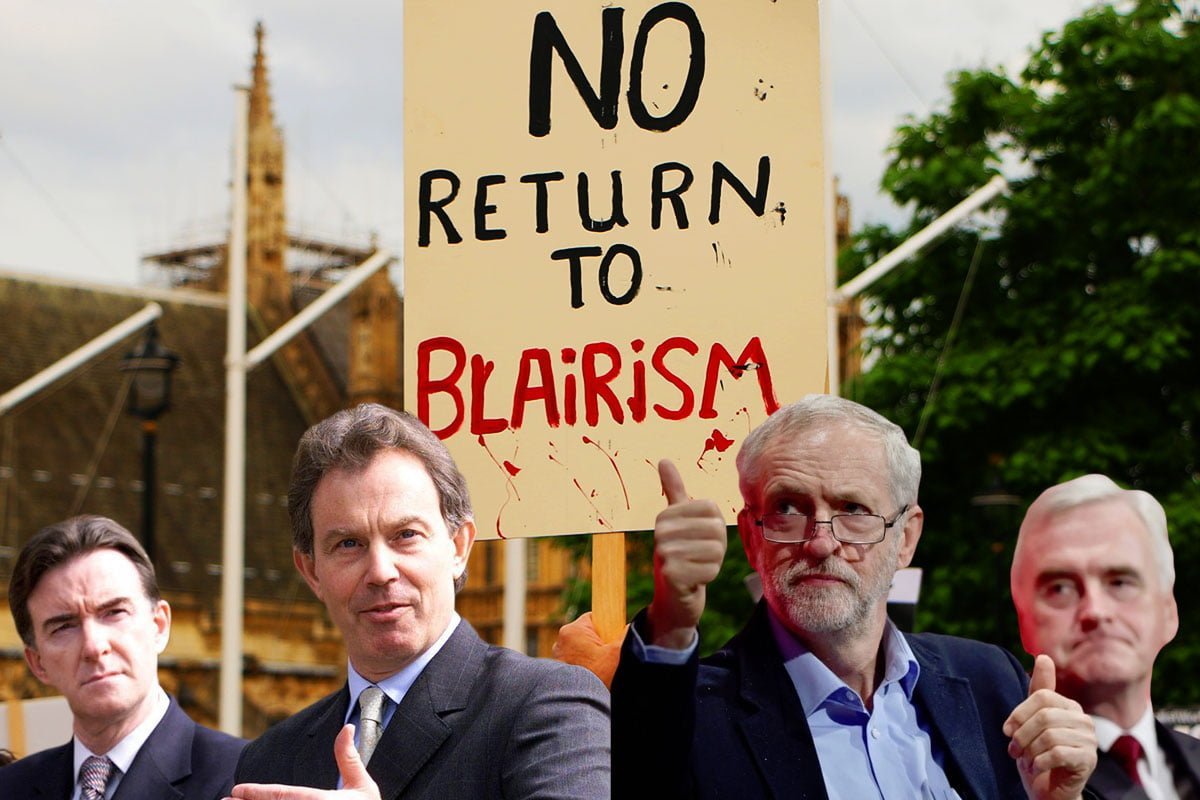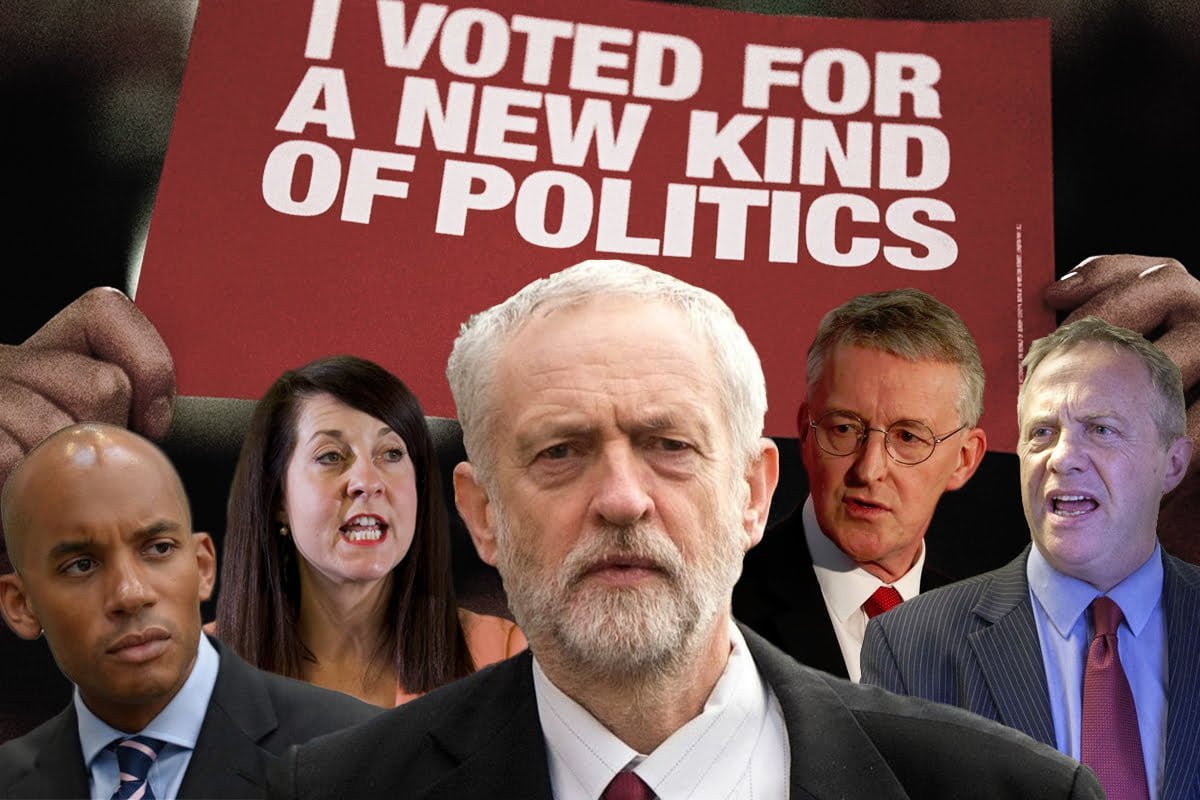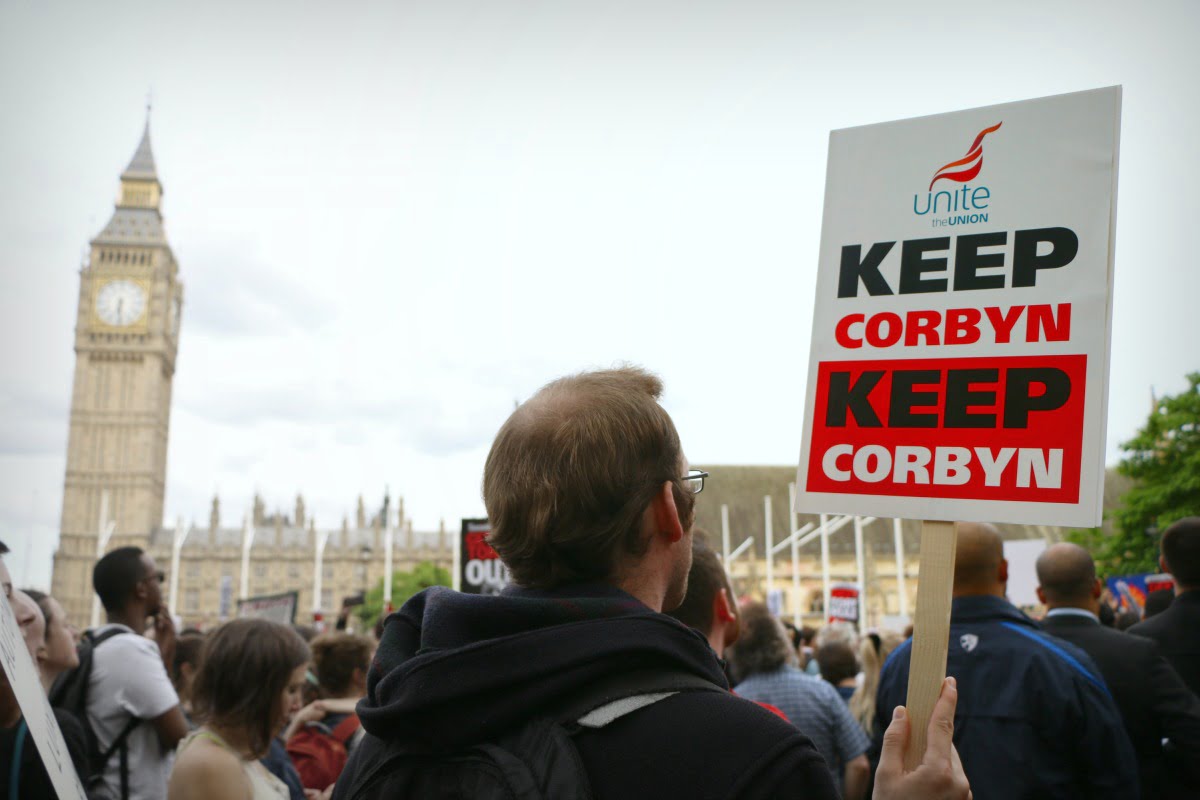We publish here a letter by a regular Socialist Appeal reader, Martin Hartnett, a Unite the Union convenor in Coventry, who replies to the right-wing attacks made against Len McCluskey and Jeremy Corbyn in the wake of the Copeland by-election defeat. The Labour right wing are throwing all their support behind Coyne in the proxy war for the Party’s future.
On 24th February, Gerard Coyne, a candidate supported by the Labour right wing to be general secretary of Unite the Union, launched an unfounded attack on Len McCluskey and Jeremy Corbyn, blaming them for the loss of the previously Labour held Copeland seat in Cumbria.
Martin Hartnett – a Unite convenor in Coventry and United Left supported candidate in the West Midlands for the Unite Executive Committee – provides this reply to Coyne, defending McCluskey and Corbyn against the right wing’s attacks.
This reply was originally published by the United Left on their website. With the kind permission of Martin Hartnett, we are republishing the reply below.
Sisters and Brothers,
Does Brother Gerard Coyne know the difference between fiction and fact?
From his public statement of 24th February it would appear that he doesn’t. Gerard Coyne not only blames Jeremy Corbyn for Labour losing the Copeland by-election, but also our general secretary Len McCluskey for supporting Jeremy.
It gets worse. Gerard accuses Len of having an “obsession with Westminster politics” and states that “the catastrophe in Copeland is not just a defeat for Labour. It is a defeat for the Westminster-obsessed Len McCluskey.”
The only positive thing to be found in Gerard’s statement is his recognition that if he is elected general secretary of Unite, he “will retain the link between the party and the union”, because he believes “that a Labour government will always serve the interests of Unite members better than any other”, but he will “not act as some sort of puppet master, deciding who should lead the party”.
It has to be recognised that the upcoming election for our General Secretary has attracted a lot of attention not only among our own members but also in society at large, especially the mass media.
There is a third candidate, Ian Allinson on the left, but in reality we have two main candidates – Gerard on the right of the union and Len on the left, and it is true that the outcome of this election may determine the fate of Jeremy Corbyn as Labour leader.
Where do the two candidates stand? Gerard is supported by the right of the LP who do not support Corbyn. In January 2016, Gerard spoke at a meeting in Westminster of some 40 MPs. The meeting was organised by Labour for the Common Good, founded by Chuka Umunna and Tristram Hunt, two gentlemen who have consistently campaigned and plotted against the democratically elected leader of the LP. It was Hunt’s resignation as Stoke Central MP that triggered the recent by-election that Labour won.
Tom Watson, MP, also supports Gerard. Tom, the democratically elected deputy leader of the LP, who you would think would support the democratically elected LP leader, has publically spoken of his “Anaconda” strategy: to systematically squeeze Corbyn until he has no basis of support left in the party and will be forced to resign. Gerard is also supported by the two most right-wing Blairite organisations in the LP – Progress and Labour First.
All of those individuals and organisations on the right of the LP support a programme of austerity that makes our members, and working class people in general, pay for an economic crisis that they did not cause. How can Gerard honestly claim that he will protect our members when his most prominent backers will do everything possible to ensure that our members pay for the economic mess?
Len McCluskey is against austerity and knows that our members have to fight to defend jobs, wages, terms and conditions, and the public services that many of our members rely on for their social wage. Len knows that for the first time in living memory we have, in Jeremy Corbyn, a democratically elected LP leader who is also against austerity and who therefore should be supported; plus the overwhelming mass of LP members agree with Len.
So let us look at the issues surrounding the Copeland by-election – a Labour loss that has given Gerard the opportunity to attack Len and Corbyn.
The mass media and the right wing in the LP waged an unrelenting campaign against Labour in the hope that both by-elections would be lost and Corbyn would be forced to resign (the BBC was typical). In December, the BBC said this about Copeland: “Apart from 1997…Copeland has always had only a very narrow Labour majority”. In January they said, “…Copeland and Stoke were once safe Labour seats…now seen as being in play in volatile Brexit climate”. Then, only after the defeat of Labour a few days ago, the BBC correspondent referred to Copeland as the “safest of safe Labour seats”. What do the voting figures tell us about Copeland?
Effect of boundary changes
 Copeland constituency emerged in 1983 out of the old Whitehaven seat. Whitehaven had been Labour since 1935. Progressively more bits of the Lake District were included into Copeland. In 2010, Crummock, Dalton, Derwent Valley and Keswick in the Allerdale District were added. Keswick is a lovely place, but it cannot be described as a ‘“Labour heartland”! Together with long years of neglect by New Labour, the constituency has steadily become more and more marginal.
Copeland constituency emerged in 1983 out of the old Whitehaven seat. Whitehaven had been Labour since 1935. Progressively more bits of the Lake District were included into Copeland. In 2010, Crummock, Dalton, Derwent Valley and Keswick in the Allerdale District were added. Keswick is a lovely place, but it cannot be described as a ‘“Labour heartland”! Together with long years of neglect by New Labour, the constituency has steadily become more and more marginal.
| Year | Labour vote (%) | Tory vote (%) | Turnout (%) |
| 1997 | 58.2 | 29.2 | 76.3 |
| 2001 | 51.8 | 37.5 | 64.9 |
| 2005 | 50.5 | 31.7 | 62.3 |
| 2010 | 46.0 | 37.1 | 67.8 |
| 2015 | 42.3 | 35.8 (plus 15.5% for UKIP) | 63.8 |
| 2017 | 37.3 | 44.2 | 51.4 |
Progressively over 20 years, the Labour vote has gone down because the needs of the local people in Copeland have been ignored by successive governments of all colours and the electorate in the constituency has also changed against Labour.
The turnout figure for the recent by-election surely reflects a less-than-enthusiastic attitude by the local electorate to what was on offer by all parties!
So are Len and Jeremy to blame for the loss of Copeland?
Nuclear power
Then Gerard tells us that Labour lost because of Corbyn’s lack of support for nuclear power, as Unite has 3,000 members at Sellafield in the Copeland constituency. We do need a thorough discussion in our union at all levels on the pros and cons of nuclear power, since so many of our members work in the industry, and perhaps this can start the ball rolling.
Over the past five years the nuclear leak at Fukushima has contaminated the largest ocean on earth, the Pacific, and the plant is still leaking 300 tons of radioactive waste into the ocean every day.
We also have to ask who pays the bill for cleaning up and storing the contaminated waste when nuclear plants are decommissioned. Up to now it has been Unite members, along with other taxpayers, who have shelled out tens of billions of pounds of public money to clean up the mess of privately owned nuclear plants.
A new nuclear plant is being built at Hinckley Point in Devon and it will only be financially viable when the cost per unit of output is double what customers are paying today. The government has agreed with EDF a “strike price” of £92.50 MWh compared to what we have today, £45 MWh.
What is really at stake in Copeland are the skilled jobs and wages of our members and any possible move away from nuclear power for the reasons outlined above must also have plans for alternative energy sources that will utilise the skills and expertise of our members on comparable wages, terms and conditions.
This is a discussion that will continue within our union and in society as a whole. However, it is also clear that both Unite and the Labour Party support a balanced energy policy (including nuclear), and McCluskey and Corbyn recognise this. Some voters in Copeland may have been spooked by the media demonisation of Corbyn, but a moment’s reflection should have told them that there is no prospect of anyone closing Sellafield in the foreseeable future, and neither should there be without guarantees of suitable alternative work.
The mass media, LP MPs and grandees
 There was no way that Corbyn could win from the two by-elections. If both had been won, it would have been despite Corbyn. If both had been lost, it would have been because of Corbyn. So we won one and lost one – and we are told that Corbyn is to blame; and as soon as the results were known the mass media and many so-called Labour MPs demanded Corbyn’s head.
There was no way that Corbyn could win from the two by-elections. If both had been won, it would have been despite Corbyn. If both had been lost, it would have been because of Corbyn. So we won one and lost one – and we are told that Corbyn is to blame; and as soon as the results were known the mass media and many so-called Labour MPs demanded Corbyn’s head.
We also had the despicable intervention of Blair and Mandelson just before voting took place. Mandelson revealed that he spent every waking hour plotting to remove Corbyn. Blair sought to smear Corbyn’s stance on the triggering of Article 50 by calling for people to “rise up” against the Brexit vote. Blair has also stated that he would prefer Labour to lose the 2020 election rather than have a LP led by Corbyn.
What they all really fear is not so much Corbyn, but what stands behind him. There are hundreds of thousands of LP members who see in Corbyn a defender of the NHS, of public services, of the jobs, wages, terms and conditions of trade unionists and working class people.
Corbyn’s anti-austerity message has brought masses of people into political activity and they want different policies to the ones that have been carried out by previous leaders of the LP. They also want elected political representatives – councillors and MPs – to defend and campaign for those policies; and if they won’t, they will be deselected.
That is why the rich and powerful in Britain, and their apologists among the mass media, as well as many Labour MPs and some leaders of our movement, want Corbyn removed and the “Corbyn revolution” stamped out.
Consciously or not, Gerard is part and parcel of that anti-Corbyn movement. Just remember that every single candidate who has stood against Corbyn to be leader of the LP has been in favour of austerity; of making our people pay for the crisis with cuts in living standards, directly and indirectly. Even Owen Smith was in favour of mainstream austerity policies to start with. During the 2016 leadership contest he had to publicly come out against austerity and pinch Corbyn’s policies in order to gain some traction in his campaign, but his backers were all pro-austerity. That is also the implication of Gerard’s position, no matter what language he uses to defame Len and Corbyn.
Perhaps one final note. Over a century ago the trade unions helped to create a political voice for working class people: the Labour Party. At that time they recognised that the interests and needs of working class people could not be realised through trade union action alone. Since that time most trade unions, and ours in particular, have seen the need to be closely allied with the LP, affiliating to it, attending the LP conference and voting there, and encouraging individual members to join the LP.
The LP still remains our political voice and therefore we should be active at all levels of the LP to ensure that its policies and its leader reflect the needs and interests of our members and the working class.
- Vote for Len McCluskey as Unite general secretary
- Defend Jeremy Corbyn
- Fight austerity
Yours fraternally, Martin Hartnett






